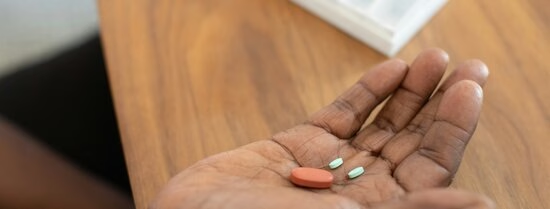The new curriculum of the Medicine program is in preparation! Over 100 lecturers and students, under the guidance of the project team Erasmusarts 2030 (EA2030), developed the important pillars of education in recent months: Cased based learning (in Dutch: Casusgestuurd onderwijs, in short: CGO), Project learning (in Dutch: Projectonderwijs, in short: PO), Formation of identity and professionalism (in Dutch: Vorming van identiteit en professionaliteit, in short: VIP) en Programmatic testing (in Dutch: Programmatisch toetsen, in short: PT).
With Erasmusarts 2030, Erasmus MC is introducing a medical program that is ready for the future and in line with a contemporary vision on education. But what exactly does Erasmusarts 2030 entail and how does it differ from the existing program? After watching this informative video, you will be fully informed.

Cased based learning (CGO)
In CGO, students not only develop thorough knowledge of biomedical concepts, but also learn to place them in a social and ethical context. Under the guidance of a lecturer, groups of students delve into a case: from clinical picture to diagnosis and treatment. In the process, they discover the biomedical basis and causes of the disease, investigations needed to arrive at a diagnosis and options for treatment.
Lecturer and medical ethicist Ismaili M'hamdi: ''We aim for integrated education, so that students don't just have a narrow biomedical picture but a broader overview. So that they know how the Dutch healthcare system is organized and why.''

Project learning (PO)
PO focuses on changes in society. Medicine students work together with students from other programs on complex health issues from one of the perspectives: scientific research, medical technology, sustainable public health and healthcare policy & organization. These projects are commissioned by external stakeholders, such as the Municipality of Rotterdam or patient organizations, and contribute to social interest. In this way, students discover their own talents and learn to cooperate with other people and disciplines.
Formation of identity and professionalism (VIP)
VIP focuses on a student's personal development as an individual in various areas through feedback and reflection. Consider: personal leadership, development and professional orientation. It provides space for the development of one's own identity and professionalism as a medical professional. Under the guidance of a regular VIP coach and together with others, students get to know themselves and develop as doctors and as people.
Programmatic testing (PT)
PT is a form of testing that focuses not on getting grades, but on student growth and development. This is made possible by completing assignments in various forms, such as presentations, essays and videos on which students receive targeted feedback.
- More information
Please note that the medical program in Rotterdam is offered only and entirely in Dutch.
- Related content
- Related education

